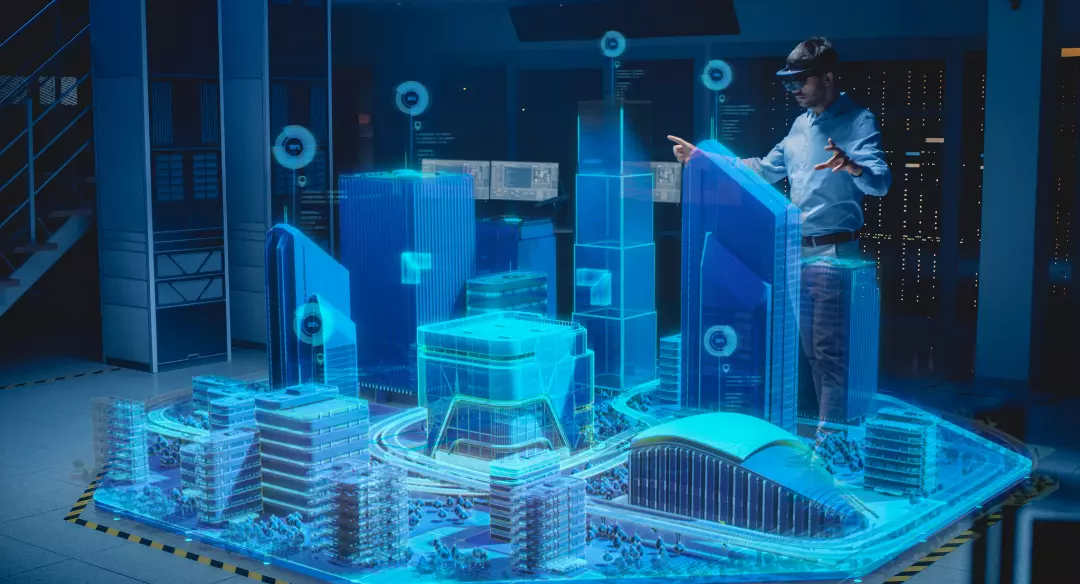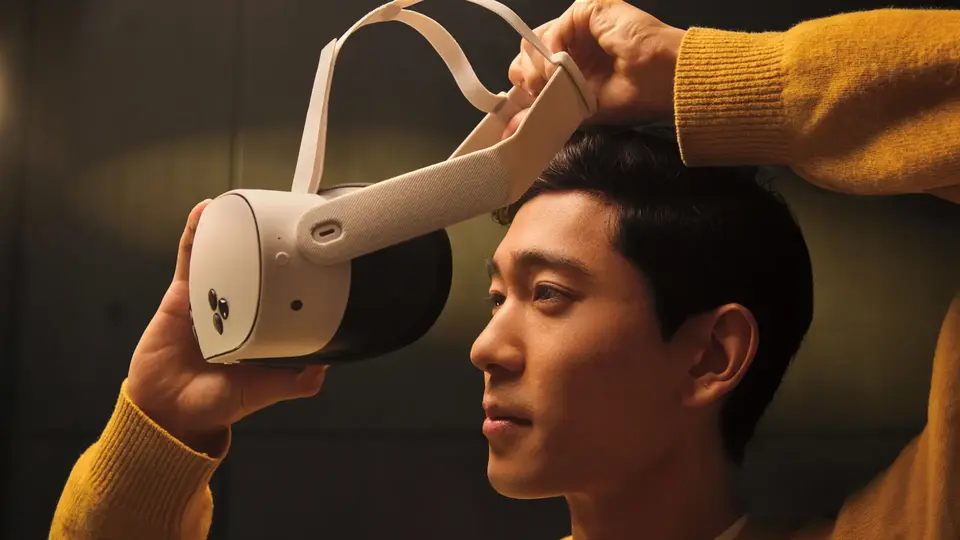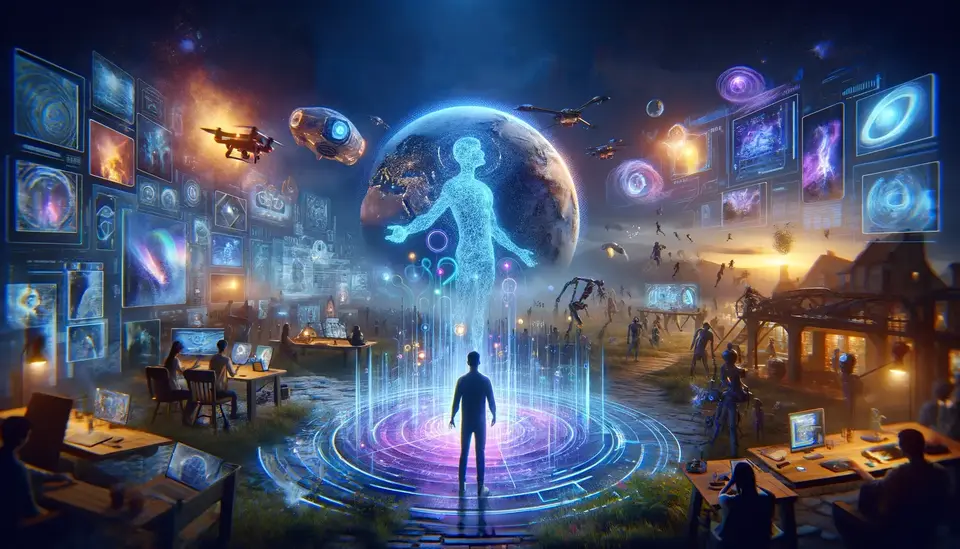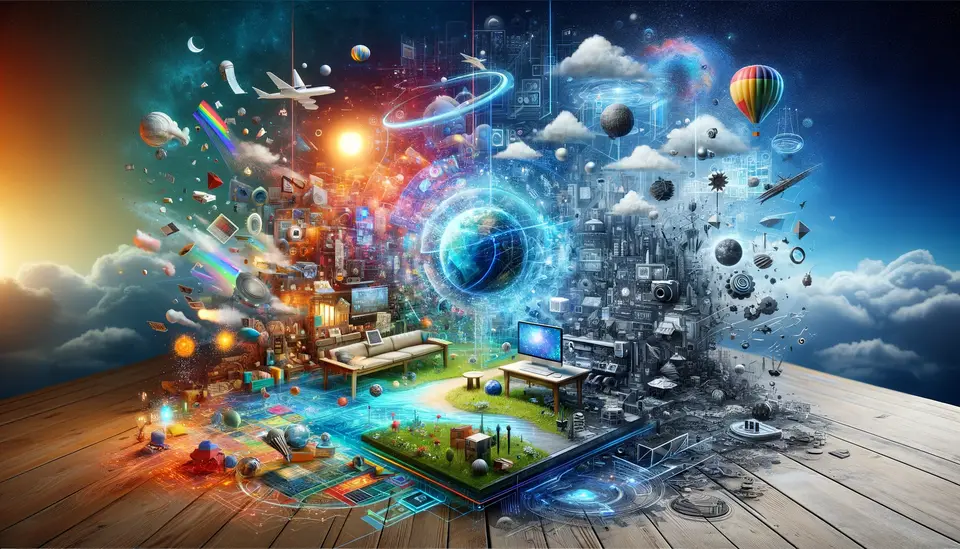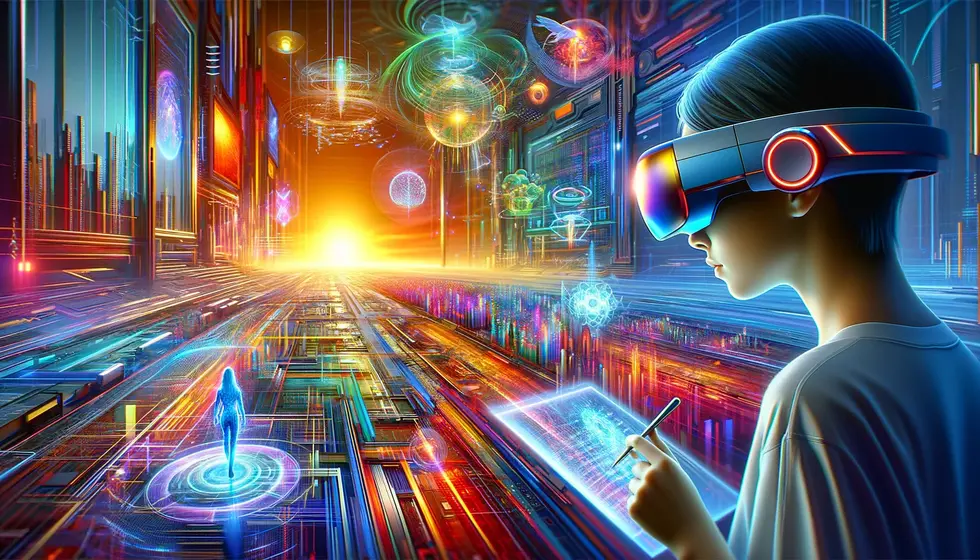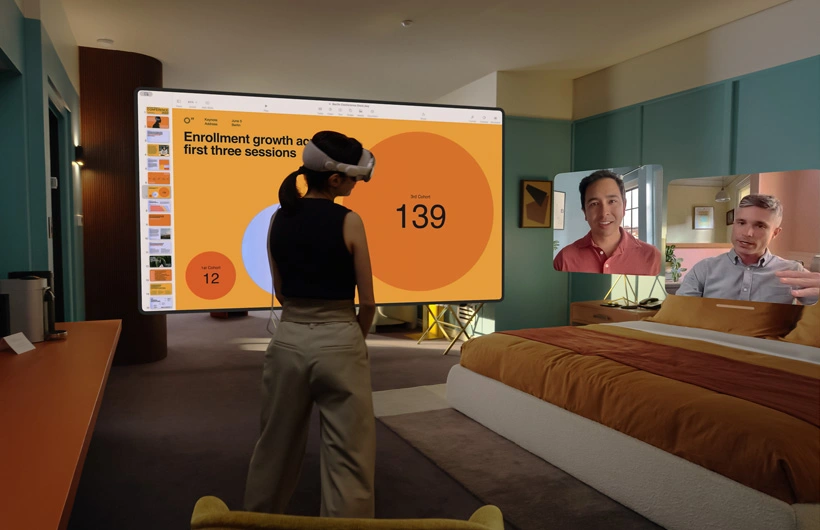15 Examples of the Use of Mixed Reality in Real Estate
Posted on April 15, 2023 4 minutes 827 words
Table of contents
- 1. Staging Properties with AR: Rooomy
- 2. Virtual Property Tours: Matterport
- 3. Interactive Floor Plans: Magicplan
- 4. Property Customization: DecorMatters
- 5. Virtual Open Houses: REveo
- 6. Location Analysis and Visualization: Google Maps AR
- 7. Maintenance and Repair: HoloLens 2
- 8. Construction Planning and Visualization: Unity Reflect
- 9. Collaboration between Stakeholders: The Wild
- 10. Accessibility for Disabled Buyers: Equal Reality
- 11. Real Estate Training and Education: Vantage Point
- 12. Property Valuation and Market Analysis: Esri CityEngine
- 13. Sustainable Development: Enscape
- 14. Historical Preservation: TimeLooper
- 15. Marketing and Advertising: AR Pandora
- Conclusion
Mixed reality is an exciting technology that combines elements of virtual reality (VR) and augmented reality (AR) to create immersive experiences. In recent years, mixed reality has begun to make a significant impact on the real estate industry, revolutionizing the way people buy, sell, and manage properties. In this blog post, we’ll explore 15 real-world examples of mixed reality being used in various aspects of real estate, demonstrating its potential to transform the industry.
1. Staging Properties with AR: Rooomy
Rooomy is an augmented reality app that allows real estate agents to virtually stage empty properties with digital furniture and decorations. This helps potential buyers visualize living in the space and can significantly increase the likelihood of a sale.
2. Virtual Property Tours: Matterport
Matterport is a leading provider of 3D property tours, enabling potential buyers to explore properties remotely without physically visiting them. The company’s platform uses mixed reality to create immersive, interactive experiences that allow users to navigate through properties as if they were there in person.
3. Interactive Floor Plans: Magicplan
Magicplan is an app that transforms traditional 2D floor plans into interactive 3D models using mixed reality. Users can easily understand the layout and flow of a property, making it easier for them to make informed decisions.
4. Property Customization: DecorMatters
DecorMatters is an AR-based interior design app that enables buyers to virtually customize properties by changing paint colors, flooring, or other design elements before making a purchase. This helps buyers feel more confident in their decisions and can streamline the buying process.
5. Virtual Open Houses: REveo
REveo is a platform that facilitates virtual open houses using mixed reality. Multiple potential buyers can explore a property simultaneously, interacting with the real estate agent in real-time. This saves time and resources for both buyers and agents.
6. Location Analysis and Visualization: Google Maps AR
Google Maps AR is a powerful tool that allows potential buyers to visualize the surrounding neighborhood, nearby amenities, and transportation options using augmented reality. By overlaying virtual information on the real world, buyers can better understand the location of a property.
7. Maintenance and Repair: HoloLens 2
Microsoft’s HoloLens 2 is a mixed reality headset that can help property managers identify and address maintenance issues. By overlaying virtual information onto physical objects or spaces, managers can quickly diagnose problems and plan repairs.
8. Construction Planning and Visualization: Unity Reflect
Unity Reflect is a mixed reality platform for architects, developers, and contractors to visualize and plan construction projects. By creating immersive 3D models, stakeholders can collaborate more effectively, reducing errors and costs.
9. Collaboration between Stakeholders: The Wild
The Wild is a mixed reality platform that enables more effective collaboration between real estate agents, buyers, sellers, architects, and other stakeholders. By providing a shared, immersive environment, participants can make better decisions and streamline the entire process.
10. Accessibility for Disabled Buyers: Equal Reality
Equal Reality is a company that uses mixed reality to create more accessible property tours and experiences for individuals with disabilities. By adapting the environment to specific needs, disabled buyers can enjoy a more inclusive and accommodating experience.
11. Real Estate Training and Education: Vantage Point
Vantage Point is a mixed reality platform that provides real estate professionals with immersive training and educational experiences. Agents can learn and develop new skills, from sales techniques to property management, in a realistic and engaging environment.
12. Property Valuation and Market Analysis: Esri CityEngine
Esri CityEngine is a software that helps agents and investors better understand property values and market trends by visualizing data in a more engaging and intuitive way. Using mixed reality, CityEngine can create detailed 3D urban environments that allow users to explore and analyze property values, development potential, and market dynamics.
13. Sustainable Development: Enscape
Enscape is a real-time rendering and mixed reality tool that helps developers and architects design more sustainable properties. By simulating energy usage, water conservation, and other environmental factors, professionals can optimize designs for energy efficiency and environmental friendliness.
14. Historical Preservation: TimeLooper
TimeLooper is a mixed reality platform that aids in preserving and showcasing historical properties. By virtually reconstructing the past and telling the stories of these properties, users can gain a better appreciation for their historical significance and heritage.
15. Marketing and Advertising: AR Pandora
AR Pandora is a mixed reality platform that enhances marketing and advertising efforts for real estate professionals. From creating immersive property ads to promoting a real estate brand, AR Pandora offers a variety of tools to help agents stand out in a competitive market.
Conclusion
Mixed reality is revolutionizing the real estate industry, offering innovative solutions to traditional challenges. As these 15 examples demonstrate, embracing mixed reality can greatly enhance the buying, selling, and managing of properties. By staying updated with the latest technologies and incorporating them into their businesses, real estate professionals can ensure they remain competitive and successful in the ever-evolving industry.

